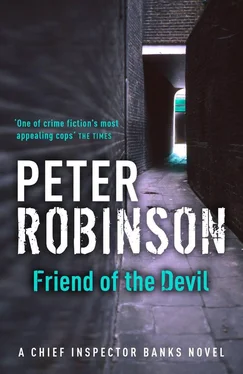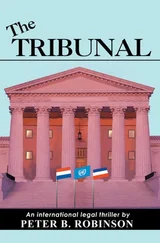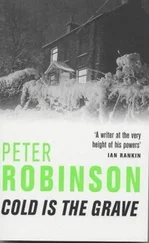Maggie looked away. “I’m sorry. I’ve neglected Ruth and Charles,” she said. “They were good to me.”
“What about Claire Toth? She misses you.”
“She hates me. I let her down.”
“She needs help, Maggie. She’s grown up now and what happened to her friend has left her with a lot of problems. You might be able to do some good there.”
“I’m not a psychiatrist, damn it. Don’t you think I’ve done enough damage? That part of my life is over. I can’t go back there.”
“Why not move farther away, then, make a clean break?”
“Because I’m from here. I need to be close to my roots. And it’s far enough.” She gestured toward the window. “Could be any modern development in any city.”
That was true, Annie thought. “Married?” she asked.
“No. Not that it’s any of your business,” Maggie answered. “And I don’t have a boyfriend, either. There’s no man in my life. I’m quite happy.”
“Fine,” said Annie. Maybe she could be happy without a man in her life, too. She’d hardly been all that happy with one. Or then again, maybe she was doomed to repeat the patterns of her old mistakes.
Maggie didn’t offer tea or coffee, and Annie was parched. She’d treat herself to something later in one of the city center cafés. “Do you own a car?” she asked.
“Yes. A red Megane. What have I done now?”
“That’s what I’m trying to find out,” said Annie. “Where were you last Sunday morning, the eighteenth of March? Mother’s Day.”
“Here, of course. Where else would I be?”
“How about the Whitby area? Ever been there?”
“A few times, yes, but not last Sunday morning.”
“Know a place called Mapston Hall?”
“Only from the news,” said Maggie. “This is about Lucy Payne, isn’t it? I should have known.”
“I would have thought you did,” said Annie. “Anyway, yes. It’s about Lucy Payne.”
“You think I killed her?”
“I never said that.”
“But you do, don’t you?”
“Did you?”
“No. I was here. I told you.”
“Alone?”
“Yes. Alone. I’m always alone. I like it best that way. When you’re alone, you can’t hurt anyone, and no one can hurt you.”
“Except yourself.”
“That doesn’t count.”
A diesel train blew its horn as it entered Leeds City Station. “So there’s no way you can prove you were here?” Annie asked.
“I never thought I’d have to.”
“What did you do?”
“I don’t remember.”
“It’s only a week ago,” said Annie. “Try. Didn’t you visit your mother?”
“My mother’s dead. I was probably reading the Sunday papers. That’s what I do on Sunday mornings. Sometimes, if it’s nice, I take them down to that café with the tables outside, but I think that morning was windy and cold.”
“Remember that, do you?” said Annie.
“It’s why I stayed inside to read the papers.”
“Ever heard of Karen Drew?”
Maggie seemed surprised by the question. “No,” she said. “I can’t say that I have.”
“Funny,” said Annie. “It was in the papers when they got hold of the story about Lucy Payne. It was the name she was going under.”
“I didn’t know that. I must have missed it.”
“How do you feel about Lucy?”
“The woman tried to kill me. When it came time to go to court, you told me the CPS wasn’t even going to bother prosecuting her. How do you think I feel?”
“Resentful?”
“You could start there. Lucy Payne took my trust, took my help when she needed it the most, then she turned around and not only betrayed me, but she would have killed me, I know, if the police hadn’t arrived. So how do you think I feel?”
“Angry enough to have killed her?”
“Yes. But I didn’t. I didn’t know where she was, for a start.”
“Do you know Julia Ford?”
“I’ve met her. She was Lucy’s lawyer.”
“Stay in touch?”
“I use her firm whenever I need legal work done, which isn’t often. But do we play golf or go out to the pub together? No. Anyway, I don’t need a criminal lawyer. Mostly I deal with Constance. Constance Wells. We’re quite friendly, I suppose. She helped me find this place.”
Of course, Annie thought, remembering the framed illustration on Constance Wells’s wall. One of Maggie’s, no doubt. “You gave her that Hansel and Gretel drawing.”
Maggie looked surprised. “Yes. You’ve seen it?”
“I was in her office last week. It’s very good.”
“You don’t have to patronize me.”
“I wasn’t. I mean it.”
Maggie gave a little dismissive gesture with her shoulders.
“Where were you at about midnight last night?”
“I’d just got home from London. I had a meeting with my publishers on Friday afternoon, so I decided to stay down until Saturday, do some shopping. That’s about as much of London as I can take these days.”
“Where did you stay?”
“Hazlitt’s. Frith Street. My publisher always puts me up there. It’s very convenient.”
“And they would verify this?”
“Of course.”
Well, Annie thought, getting ready to leave, it had been a long shot, but subject to corroboration of her alibi, it didn’t look as if Maggie Forrest could have killed Kevin Templeton. When it came to Lucy Payne, though, Maggie was still high on the list. And she didn’t have an alibi for that.
Banks arrived first at the bistro, and it wasn’t so busy that Marcel, the genuine French maître d’ couldn’t give him an effusive welcome and a quiet secluded table, complete with white linen tablecloth and a long-stemmed rose in a glass vase. He hoped it wasn’t over-the-top, that Sophia wouldn’t think he was trying to impress her or something. He had no expectations of anything, but it felt good to be having dinner with a beautiful and intelligent woman. He couldn’t remember how long it had been.
Sophia arrived on time, and Banks was able to watch her as she handed her coat to Marcel and walked toward the table, fixing his eyes with hers and smiling. She was wearing designer jeans and some sort of wraparound top that tied at the small of her back. Women have to be pretty good at using their hands behind their backs, Banks had noticed over the years; they spent so much time fastening things like ponytails, bras, wraparound clothes and difficult necklace clasps.
Sophia moved elegantly toward him, with unhurried grace, and seemed to flow naturally into a comfortable position once she sat. Her hair was tied loosely at the nape of her long neck again, and a few dark stray tresses curled over her cheeks and forehead. Her eyes were every bit as dark as he remembered, shining and obsidian in the candlelight. She wore no lipstick, but her full lips had natural color, well set off by her flawless olive skin.
“I’m glad you could make it,” said Banks.
“Me, too. I knew our walk was out of the question when I heard the news. Look at you. I’ll bet you didn’t get much sleep.”
“None,” said Banks. He realized as he spoke that not only hadn’t he slept or eaten since he had seen Sophia last night, but he hadn’t even been home, and he was wearing the same clothes he had worn to Harriet’s dinner party. He had to remember to keep a change of clothing at the station. It was embarrassing, but Sophia was clearly too much of a lady to say anything about it. They studied the menu and discussed a few items — Sophia, it turned out, was a keen gourmet cook and a food nut — and Banks ordered a bottle of decent claret.
“So it’s Sophia, is it?” Banks asked when they had ordered — steak and frites for him and sea bass for Sophia, with Stilton, pear and walnut salad to start.
Читать дальше












